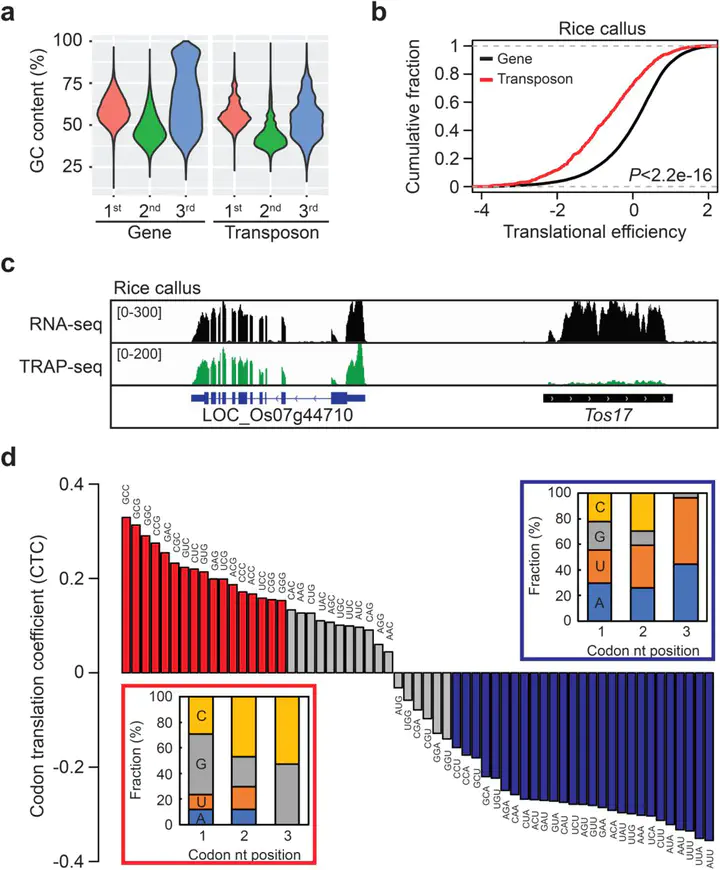Translational inhibition and phase separation primes the epigenetic silencing of transposons
 Image credit: [Eunyu Kim]
Image credit: [Eunyu Kim]Abstract
Transposons are mobile DNAs that can cause fatal mutations. To counteract these genome invaders, the host genomes deploy small interfering (si) RNAs to initiate and establish the epigenetic silencing. However, the regulatory mechanisms for the selective recognition of transposons by the host genomes remain still elusive. Here we show that plant transposon RNAs undergo frequent ribosome stalling caused by their inherently unfavourable codon sequence usage. The ribosome stalling then causes the RNA truncation and the localization to siRNA bodies, which are both critical prerequisites for the siRNA processing. In addition, SGS3, the key protein in the siRNA biogenesis pathway, forms liquid droplets in vitro through its prion-like domains implicating the role of liquid-liquid phase separation in the formation of the siRNA bodies. Our study provides a novel insight into the regulatory mechanisms for the recognition of invasive genetic elements which is essential for the maintenance of genome integrity.